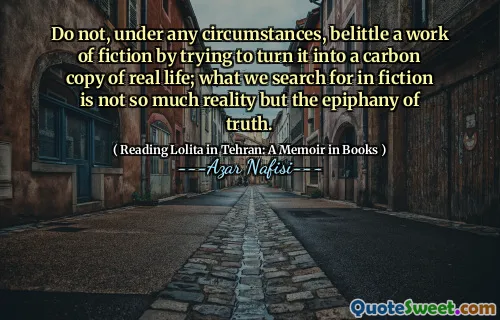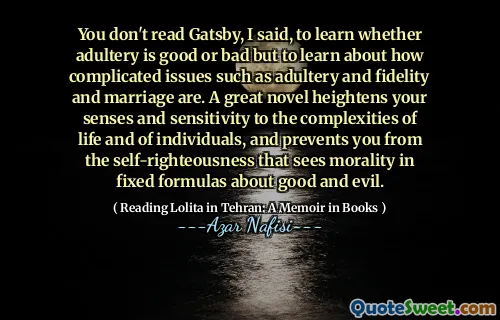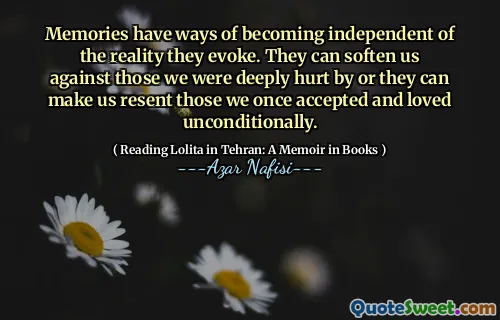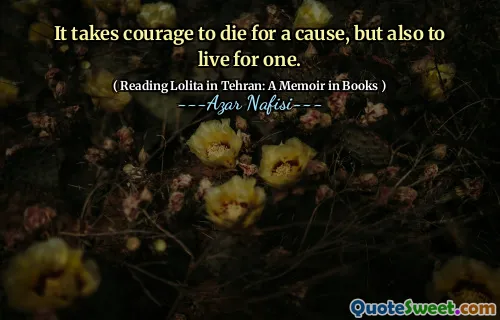
A novel is not an allegory, it is the sensory experience of another world. If you do not enter that world, if you do not hold your breath together with the characters, if you don't let yourself be involved in their destiny, you will never get to identify with them, you will never get to the heart of the book. This is how you read a novel: as if it were something to inhale, to keep in the lungs. So, start breathing.
📖 Azar Nafisi
In her memoir "Reading Lolita in Tehran," Azar Nafisi emphasizes the immersive nature of reading a novel. She argues that a book is not merely a symbolic representation of ideas, but rather a vivid sensory experience that transports readers to another realm. To fully appreciate a novel, one must engage with its characters and their journeys, effectively breathing in the story and internalizing it deeply.
Nafisi insists that genuine involvement in the narrative leads to empathy and understanding of the characters' fates. She encourages readers to approach novels with the intent to truly feel and experience the world they depict, suggesting that this engagement is essential for a profound connection to the text. Ultimately, her view highlights literature's power to evoke emotions and foster a shared human experience.











